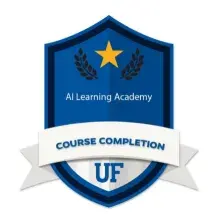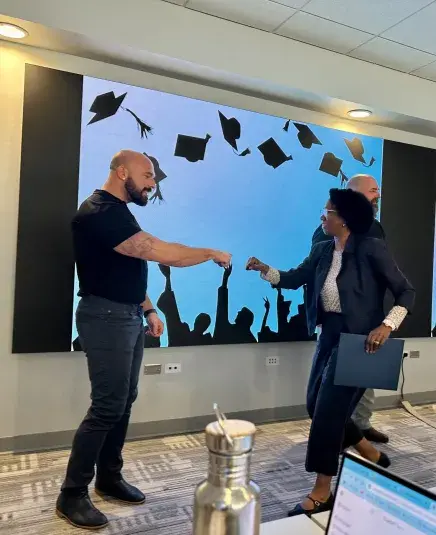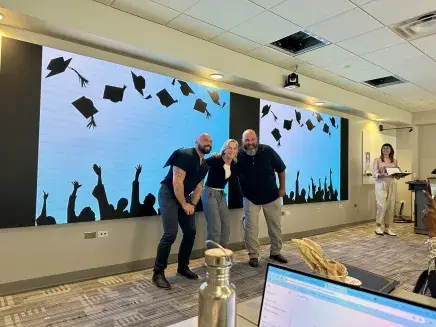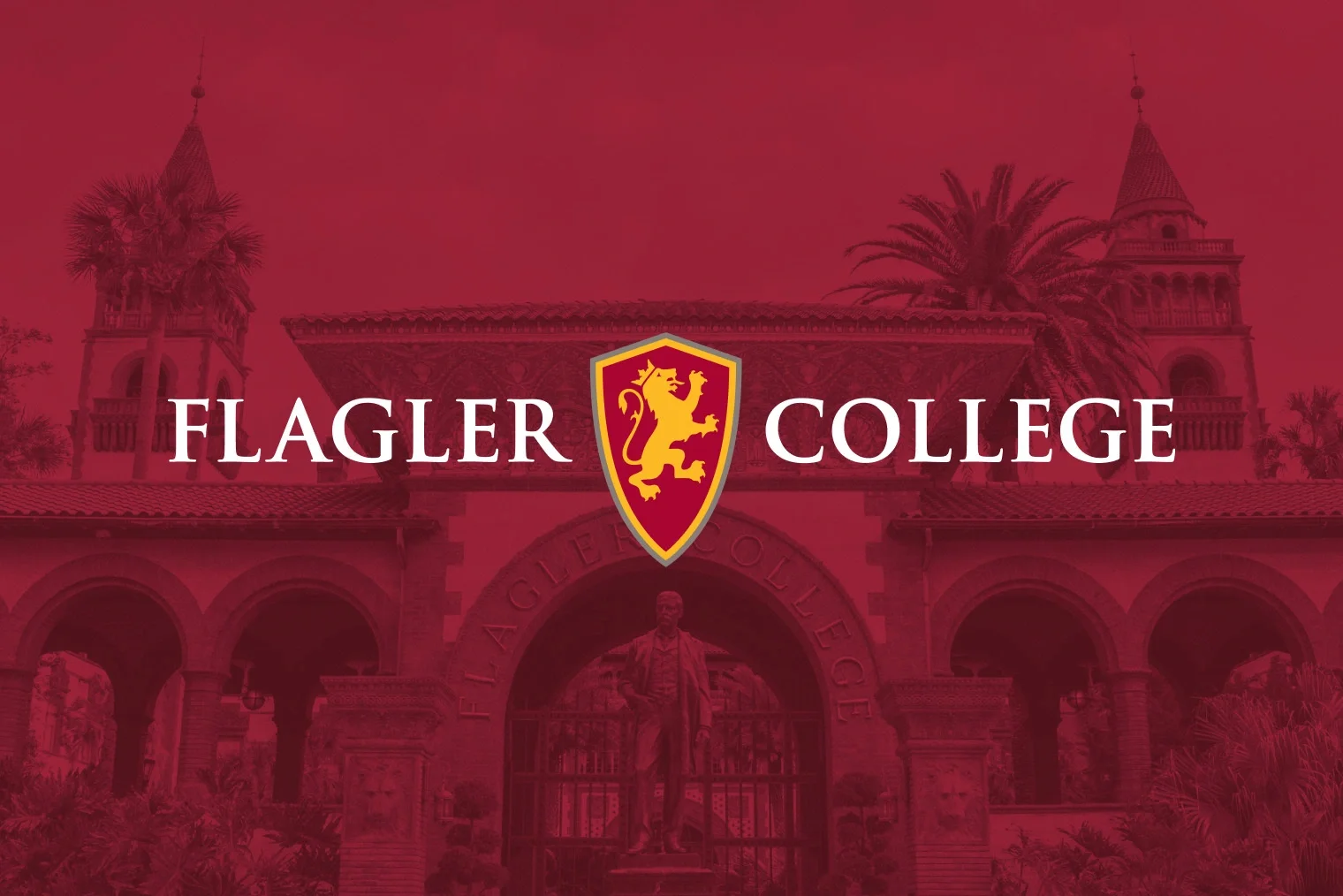
This summer, four Flagler College faculty and staff members took a significant step forward in preparing students for an AI-enhanced world.

Dr. Edwidge Bryant, Dr. Sandra Davis, Ms. Trina McCowan Adams, and Dr. Paula Seymour recently earned a credential from the University of Florida’s AI Learning Academy, a dynamic, hands-on four-day workshop exploring the role of artificial intelligence in education. Hosted in June, the Academy welcomed 36 educators and leaders from institutions across the country for an inspiring and highly practical experience.
Participants learned about supervised and unsupervised learning, large language models, deep learning, and generative AI. They also explored timely questions and held thoughtful discussions around AI ethics, addressing fairness, transparency, privacy, and safety.
With expert presenters and meaningful peer collaboration, the Academy sparked new ideas and left participants energized to bring AI-driven innovation into their respective programs.
“These experiences have broadened my understanding of AI’s potential in education,” said Dr. Sandra Davis, Professor and Coordinator of Elementary Education. “This fall, I’ve redesigned my Instructional Design for Teaching & Learning course to deeply integrate generative AI tools.”
Her students, pre-service teachers, will experiment with using AI for lesson planning, differentiation, and classroom assessment. They’ll also engage in hands-on projects where they design AI-informed instructional materials, evaluate educational AI tools, and reflect critically on the ethics and implications of using these tools in K–12 settings.

For Dr. Edwidge Bryant, Professor and Chair of the Education Department, the Academy sparked both classroom innovation and community-minded ideas.
“Many ideas discussed at the training inspired me to move forward with integrating aspects of AI into my courses,” said Bryant. “My first plan is to change how I evaluate my students and include more engaging assessments that allow them to better demonstrate their understanding of the content. The second plan is to reach out to various communities to ensure they have access to computers and the internet, helping them become more familiar with AI and its many resources.”
Building on her use of inquiry-based learning in Applied Linguistics, Dr. Bryant is also designing a new AI-related assignment this fall. Students in her course will compare human conversations with AI-generated dialogues to investigate whether Brice’s Cooperative Principles of conversational maxims are flouted in the same ways.
“I hypothesize that AI conversations cannot flout maxims; however, this topic remains to be studied,” said Bryant. “I am incredibly excited to engage in this research study with my students.”
In a broader initiative, Dr. Davis and Dr. Paula Seymour are teaming up on an interdisciplinary research project where education and business students will explore how AI can support social entrepreneurship, applying technology to community challenges.
“This intersection of entrepreneurship and AI is not without its tensions,” said Dr. Seymour, Associate Professor of Business Administration and Director of the Social Entrepreneurship Program. “But it also offers fertile ground for meaningful dialogue and creative problem-solving.”

Dr. Seymour has already integrated lessons from the AI Academy across all her courses. Each assignment now includes clear guidelines on the ethical use of AI, highlighting whether and how tools can be used and encouraging students to think critically about AI’s environmental and societal implications.
“Currently, many AI tools don’t adequately address issues of equity and sustainability,” said Seymour. “That’s why we’re challenging students to imagine how technology can be more inclusive, sustainable, and ethically responsible; aligning with the core principles of social entrepreneurship that we explore in class.”
For Trina McCowan Adams, Director of Library Services, the workshop reinforced how central librarians are to the conversation around AI and information literacy.
“The UF AI Academy delivers hands-on, ethics-driven training with a strong emphasis on critical thinking,” she said. “One of my favorite projects involved simulating a conversation with a conspiracy-loving friend, prompting students to apply the SIFT or CRAAP test to evaluate unreliable content. It’s a creative way to bring AI into the research process without losing the human judgment behind it.”
Together, the four faculty and staff members are collaborating with the Center for Teaching and Learning (CTL) and other campus leaders to help shape Flagler’s first-ever AI Badging Program, a new initiative launching this academic year to build AI literacy across disciplines.
“We’re not just reacting to change,” Davis said. “We’re leading it—so our students graduate ready to think critically, act ethically, and use technology to make a real difference.”



